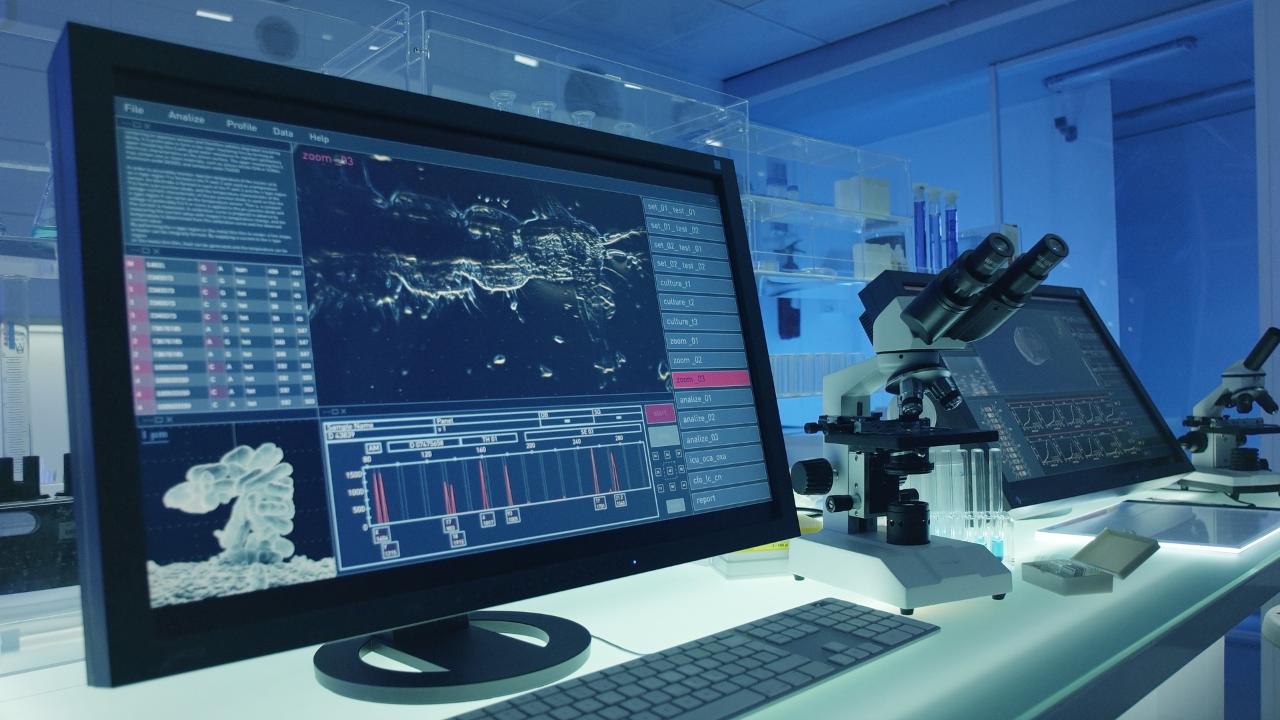1. MLT Scope in Pakistan – Unlocking a Promising Career in 2024
Medical Laboratory Technology, often abbreviated as MLT, is a rapidly growing field in Pakistan’s healthcare sector. As the demand for accurate diagnostic testing and medical research rises, so does the need for skilled MLT professionals. In 2024, MLT is emerging as an exciting career path with vast potential. This comprehensive guide will explore the scope of MLT in Pakistan, covering career opportunities, salary potential, educational pathways, and much more. Whether you’re a student considering MLT or a professional seeking a career change, this article will equip you with the essential information to make an informed decision.
Table of Contents
2. What is Medical Laboratory Technology (MLT) in Pakistan?
Medical Laboratory Technology (MLT) involves the analysis of blood, tissue, and other bodily fluids to diagnose diseases, monitor patient health, and conduct medical research. MLT professionals work in laboratories, utilizing sophisticated equipment and techniques to perform various tests. They play a critical role in assisting doctors in making accurate diagnoses and treatment decisions.
In Pakistan, aspiring MLT professionals can pursue different degree programs:
- BS MLT (Bachelor of Science in Medical Laboratory Technology): This is a 4-year program that provides in-depth knowledge and practical training in various aspects of laboratory science.
- BSc MLT (Bachelor of Science in Medical Laboratory Technology): Similar to BS MLT, this 4-year program focuses on the scientific principles and techniques used in medical laboratories.
- ADP MLT (Associate Degree Program in Medical Laboratory Technology): This is a 2-year program that offers a condensed version of MLT education, suitable for those seeking quicker entry into the workforce.
While both the 4-year BS and BSc MLT programs offer comprehensive education, the 2-year ADP MLT provides a faster route to a career in medical laboratory technology. The choice between these programs depends on individual preferences and career goals.
3. MLT Scope in Pakistan – Current and Future Prospects
The current scope of MLT in Pakistan is promising, with a steady demand for qualified professionals in various healthcare settings. Hospitals, diagnostic laboratories, blood banks, and research institutions all require MLT experts to ensure accurate and timely test results.
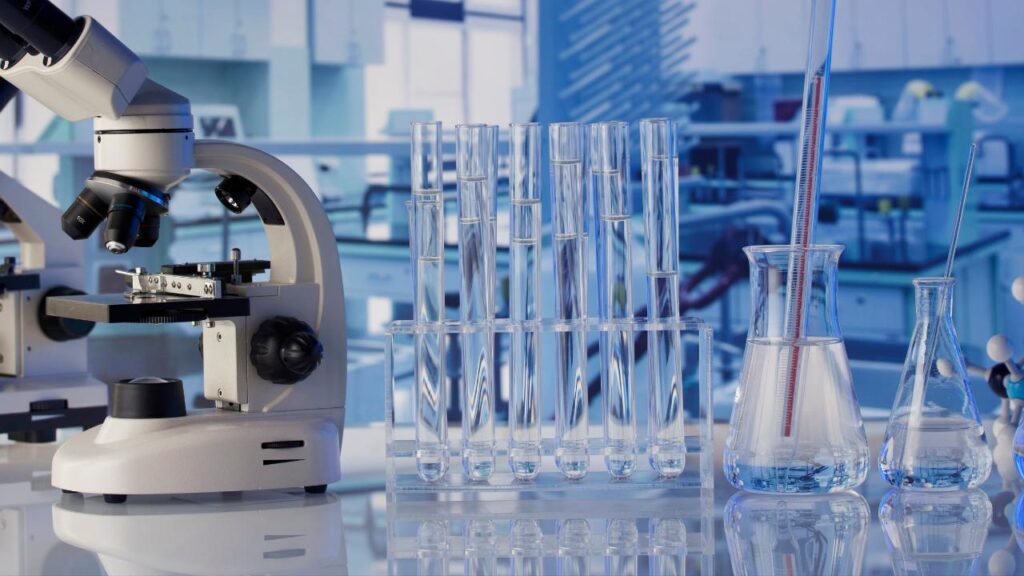
The future prospects for MLT in Pakistan are even brighter. Advancements in medical technology, coupled with an increasing focus on preventive healthcare and disease management, are driving the demand for MLT professionals even higher. By 2024 and beyond, the MLT field is expected to experience significant growth, offering ample opportunities for career advancement and specialization.
MLT graduates can find employment in both government and private sectors. Government hospitals and public health institutions offer stable jobs with attractive benefits. The private sector, including renowned diagnostic labs and research centers, provides competitive salaries and opportunities for professional development.
4. MLT Scope in Pakistan for Male and Female Students
MLT is a field that welcomes both male and female students in Pakistan. It offers a diverse range of career paths suitable for individuals of all genders.
- For Male Students: Male MLT graduates can excel in roles such as laboratory managers, senior technologists, and research scientists. They can also find opportunities in specialized areas like molecular diagnostics and forensic science.
- For Female Students: MLT is an excellent career choice for females in Pakistan. It provides a safe and respectable working environment, with flexible hours and opportunities for career growth. Female MLT professionals can work in hospital laboratories, diagnostic centers, and research facilities, contributing significantly to the healthcare sector.
In terms of job availability and security, MLT offers equal opportunities for both males and females. The working hours are generally standard, and the profession enjoys high respect in Pakistani society.
5. Career Opportunities and Job Roles in MLT in Pakistan
MLT graduates in Pakistan have a wide array of career opportunities and job roles to choose from. Popular career options to consider are:
- Lab Technician: Performs routine laboratory tests, operates and maintains laboratory equipment, and prepares samples for analysis.
- Lab Technologist: Conducts complex laboratory tests, interprets test results, and troubleshoots technical issues.
- Quality Control Officer: Ensures the accuracy and reliability of laboratory tests by implementing quality control measures.
- Research Scientist: Conducts research in medical laboratories, develops new diagnostic techniques, and contributes to scientific advancements.
- Lecturer: Shares knowledge and expertise by teaching MLT courses in universities and colleges.
MLT professionals can also find fulfilling careers in blood banks, pathology laboratories, and research institutions. They play a vital role in ensuring the quality and safety of blood transfusions, analyzing tissue samples for disease diagnosis, and contributing to groundbreaking medical research.
Some of the top employers of MLT professionals in Pakistan include:
- Shaukat Khanum Memorial Cancer Hospital and Research Centre
- Aga Khan University Hospital
- Chughtai Lab
- National Institute of Health
- Indus Hospital
These institutions offer excellent working environments, competitive salaries, and opportunities for professional growth.
6. MLT Salary and Earning Potential in Pakistan
The salary and earning potential for MLT professionals in Pakistan vary depending on several factors, including experience, education level, job location, and the type of organization.
- Average Salary: The average salary for an MLT professional in Pakistan ranges from PKR 30,000 to PKR 50,000 per month for entry-level positions. With experience and specialization, salaries can increase significantly, reaching PKR 80,000 to PKR 150,000 per month or even higher for senior positions.
Factors Affecting Salary
- Experience: As MLT professionals gain experience, their earning potential increases substantially.
- Education Level: Higher qualifications, such as a master’s degree in MLT or a related field, can lead to higher-paying positions.
- Job Location: Salaries may vary across different cities and regions in Pakistan. Major cities like Lahore, Karachi, and Islamabad tend to offer higher salaries compared to smaller towns.
- Type of Organization: Private sector organizations, especially renowned diagnostic labs and research centers, often offer more competitive salaries than government institutions.
Overall, MLT offers a financially rewarding career path in Pakistan, with opportunities for significant income growth and financial stability.
7. Is MLT a Good Field? Benefits and Challenges of MLT in Pakistan
MLT is undoubtedly a good field with numerous benefits and promising career prospects in Pakistan. Some of the key advantages include:
- Job Stability: The demand for MLT professionals is consistently high, ensuring job security and stability.
- High Demand: The healthcare sector is continuously expanding, creating a growing need for skilled MLT professionals.
- Opportunities for Growth: MLT offers various opportunities for specialization, career advancement, and further education.
- Respect and Recognition: MLT professionals enjoy respect and recognition for their crucial role in healthcare.
- Work-Life Balance: While MLT professionals may occasionally work long hours, the field generally offers a good work-life balance compared to other medical professions.
However, like any other field, MLT also comes with its challenges:
- Handling Biohazard Materials: MLT professionals work with potentially infectious samples, requiring strict adherence to safety protocols.
- Complex Equipment: Operating and maintaining sophisticated laboratory equipment demands technical expertise and precision.
- Stressful Situations: Dealing with critical patient samples and time-sensitive test results can be stressful at times.
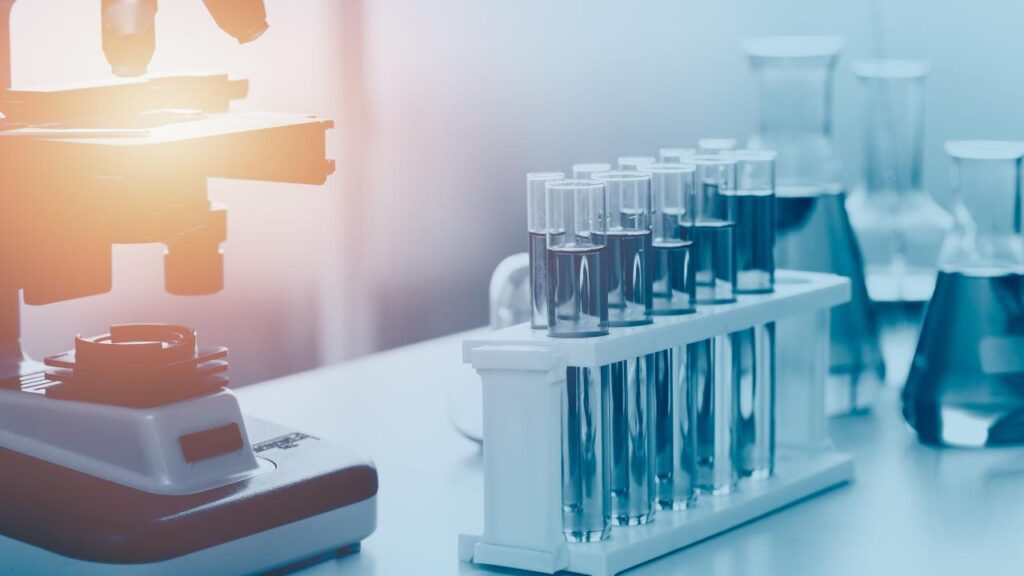
Despite these challenges, the rewards of a career in MLT outweigh the drawbacks. The opportunity to contribute to patient care, make a positive impact on people’s lives, and be part of a dynamic and evolving field makes MLT a fulfilling and worthwhile profession.
8. Eligibility Criteria for MLT in Pakistan
To enroll in an MLT program in Pakistan, students typically need to fulfill the following eligibility criteria:
Educational Requirements
- FSc Pre-Medical or equivalent with at least 50% marks.
- Some universities may accept students with A-Levels or other equivalent qualifications.
Admission Test Requirements
- Most universities require students to clear the MDCAT (Medical & Dental College Admission Test) or a university-specific entrance exam.
- The minimum MDCAT score or entrance exam score required may vary across different institutions.
In addition to these requirements, some universities may have specific age limits or other prerequisites for MLT admission. It’s essential to check the individual admission criteria of each university you’re interested in.
9. Best Universities for MLT in Pakistan
Several universities and colleges in Pakistan offer reputable MLT programs. Some of the top institutions known for their MLT education include:
- University of Health Sciences (UHS), Lahore
- University of Central Punjab (UCP), Lahore
- Dow University of Health Sciences (DUHS), Karachi
- Riphah International University, Islamabad
These universities stand out due to their experienced faculty, state-of-the-art infrastructure, comprehensive curriculum, and strong industry connections. They offer a conducive learning environment and provide students with the necessary skills and knowledge to excel in the MLT field.
When choosing a university for MLT, consider factors such as faculty qualifications, laboratory facilities, research opportunities, and placement rates. It’s also crucial to visit the university campus, interact with faculty and students, and gather information about the program’s curriculum and specializations.
10. MLT Fee Structure in Pakistan
The fee structure for MLT programs in Pakistan varies depending on the university, program duration, and facilities offered.
Average Fee Range
- BS MLT and BSc MLT programs typically cost between PKR 100,000 to PKR 500,000 per year.
- ADP MLT programs usually have lower fees, ranging from PKR 50,000 to PKR 300,000 per year.
Scholarships and Financial Aid
Many universities offer scholarships and financial aid programs to deserving MLT students. Scholarships are often awarded based on a combination of merit, financial need, and various other eligibility factors. It’s advisable to explore the scholarship opportunities available at each university you’re considering.
In addition to tuition fees, students should also factor in other expenses such as accommodation, books, and laboratory supplies. Some universities may offer installment plans or flexible payment options to ease the financial burden on students.
11. Is MLT a Doctor? Understanding the Professional Status
It’s important to clarify that MLT professionals are not doctors. While they play a crucial role in the medical field, their qualifications, skills, and responsibilities differ from those of physicians.
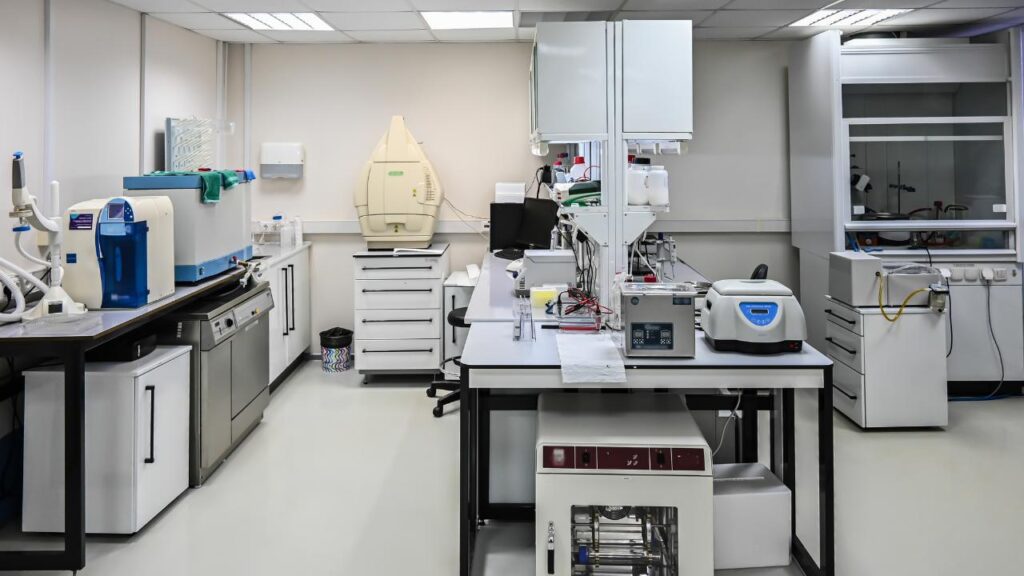
- MLT vs. Doctor: MLT professionals focus on laboratory diagnostics and analysis, while doctors diagnose and treat patients directly. MLT professionals work in collaboration with doctors, providing them with essential laboratory data to aid in diagnosis and treatment planning.
- Professional Status: MLT professionals hold a bachelor’s or associate degree in Medical Laboratory Technology. They possess specialized knowledge in laboratory techniques, instrumentation, and quality control. Their primary responsibility is to perform accurate and reliable laboratory tests, ensuring the quality and safety of patient care.
While MLT professionals are not doctors, they hold a respected position in the healthcare team. They contribute significantly to patient care by providing critical diagnostic information and supporting medical research. With further education and specialization, MLT professionals can advance their careers and take on leadership roles in laboratory management or research.
12. BS MLT vs. BSc MLT vs. ADP MLT: Which One to Choose?
When deciding between BS MLT, BSc MLT, and ADP MLT, consider the following factors:
- Duration: BS MLT and BSc MLT are 4-year programs, while ADP MLT is a 2-year program.
- Curriculum: All three programs cover the fundamentals of medical laboratory science. However, BS and BSc MLT programs offer more in-depth knowledge and specialization options.
- Career Opportunities: BS and BSc MLT graduates have a wider range of career opportunities, including research and academia. ADP MLT graduates typically find employment in routine laboratory roles.
- Market Demand: The demand for BS and BSc MLT graduates is generally higher due to their comprehensive education and specialized skills.
The choice ultimately depends on your career goals, time constraints, and financial considerations. If you seek a quicker entry into the workforce, ADP MLT might be suitable. However, if you aspire to pursue advanced career paths or specialize in a particular area, BS or BSc MLT would be a better choice.
13. Conclusion: Is MLT a Worthwhile Career Choice in Pakistan?
MLT is undoubtedly a promising and rewarding career choice in Pakistan. The field offers job stability, high demand, competitive salaries, and opportunities for growth and specialization. With advancements in medical technology and an increasing focus on healthcare, the scope of MLT is only expected to expand in the coming years.
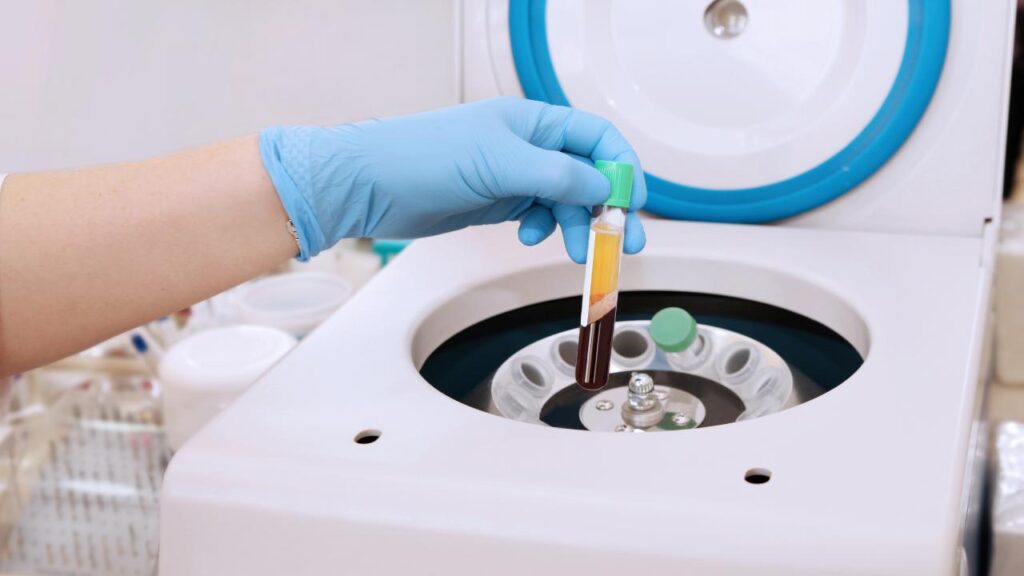
If you have a passion for science, enjoy working in a laboratory setting, and want to make a meaningful contribution to healthcare, MLT could be the perfect career path for you. Whether you aspire to work in diagnostics, research, or academia, MLT provides a platform to build a successful and fulfilling career in Pakistan’s healthcare sector.
FAQs
-
Does MLT have a scope in Pakistan?
Yes, MLT has a significant scope in Pakistan. The demand for skilled MLT professionals is consistently high due to the growing healthcare sector and advancements in medical technology.
-
Is MLT good for girls?
Absolutely! MLT is an excellent field for girls in Pakistan. It offers a safe and respectable working environment, flexible hours, and opportunities for career growth.
-
How much merit is required for MLT in Pakistan?
The merit required for MLT varies across different universities. Generally, students need to have at least 50% marks in FSc Pre-Medical or equivalent and a good score in the MDCAT or university-specific entrance exam.
-
What is the highest salary for MLT in Pakistan?
The highest salary for MLT in Pakistan can reach PKR 150,000 or more per month for experienced professionals with specialized skills and qualifications.
-
What is the difference between a 4-year and 2-year MLT degree?
A 4-year MLT degree (BS or BSc MLT) offers a more comprehensive education with in-depth knowledge and specialization options. A 2-year MLT degree (ADP MLT) provides a faster route to a career in MLT but may limit career advancement opportunities.
